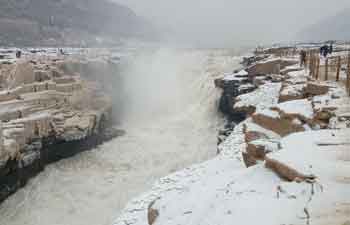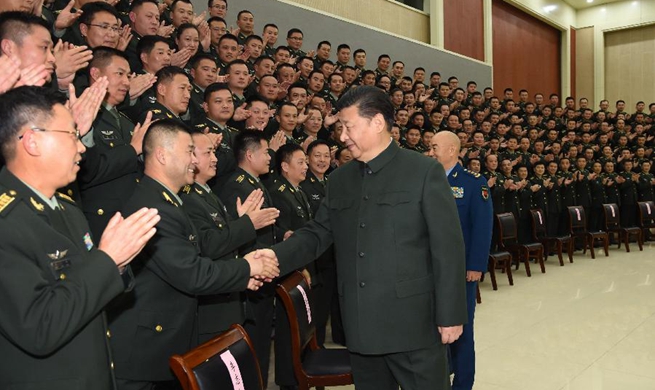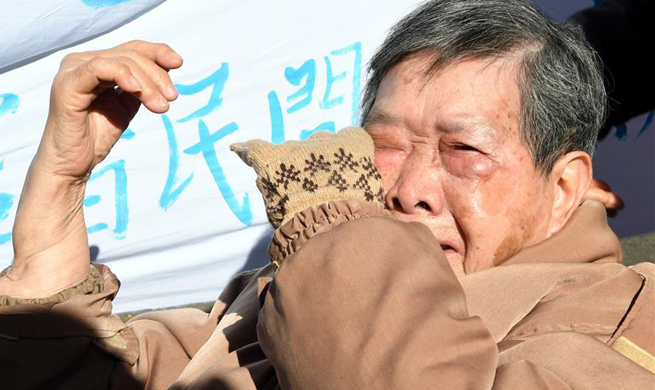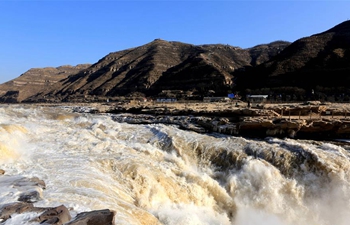by Matthew Rusling
WASHINGTON, Dec. 14 (Xinhua) -- U.S.-Russia relations will likely remain tense in 2018, experts said, as myriad issues over which the two are at odds show no sign of being resolved next year.
"U.S.-Russia ties remain strained," Dan Mahaffee, senior vice president and director of policy at the Center for the Study of the Presidency and Congress, told Xinhua.
Washington's relationship with Moscow has been sour for some time, amid disagreements involving the war in Syria, the conflict in Ukraine, and the Kremlin's alleged meddling in the 2016 U.S. presidential elections.
"Congress, as well as many in the Trump administration, remain concerned about the Russian threat to the United States and key allies, and are unconvinced that a rapprochement with Russia could somehow solve issues with Ukraine, Syria, Iran, and North Korea (DPRK)," Mahaffee said.
The sentiment was underscored earlier this week in a speech by H.R. McMaster, U.S. President Donald Trump's national security adviser, in which he called Russia a "revisionist" power that poses a number of threats to the United States.
"Geopolitics are back and are back with a vengeance after this holiday from history we took in the so-called post-Cold War period," McMaster said Tuesday just a week before the White House is slated to unveil its national security strategy.
Commenting on the heightened rhetoric, Michael O'Hanlon, a senior fellow on foreign policy at the Brookings Institution, said "what you are seeing is a strong desire to push back against Russian ... assertiveness, and you'll probably see more of this in the national security strategy next week."
"There is a sense among some of the top team ... that Russia ... has been taking advantage of us," O'Hanlon added.
Russia is billed a revisionist power because it is seen as a competitor to U.S. interests and seeks to establish spheres of influence in Eastern Europe, despite the relationships the United States has with allies in the region, said Mahaffee.
Experts said Congress believes the United States cannot work with Russia, despite Trump's hopes several months ago that the two could partner on a number of issues.
U.S. policy on Russia is heading only in one direction, and that is an increasing toughening of the U.S. position, the experts said.
Furthermore, quite a few U.S. agencies have been saying that Moscow had aimed to influence the elections in order to boost Trump's chances of capturing the White House.
Trump has dismissed the accusations of collusion with Moscow as a witch hunt by those who were disappointed that Hillary Clinton lost the elections. Russia also denied the allegations.
A Senate committee as well as Department of Justice Special Counsel Robert Mueller are undertaking investigations, which are expected to last into next year.
The Trump administration has cooperated with the investigations, but dismissed them as unimportant.
Trump "may have some good instincts that we should be looking for ways to get along with Russia where we can, but the rest of the team I think is largely preoccupied with what Russia did to our democracy last year," O'Hanlon said, speaking of the Kremlin's alleged meddling in the elections.

















